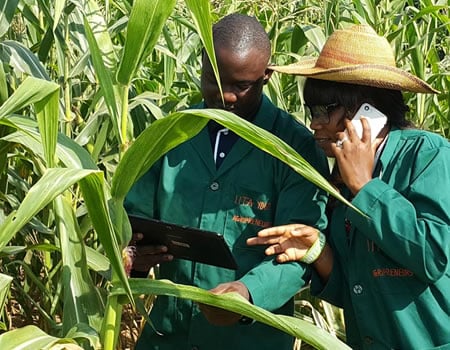The International Institute for Tropical Agriculture (IITA), other stakeholders in the agricultural sector including the Food and Agricultural Organisation of the United Nations (FAO), organised Food Convergence Innovation to address the issue of food safety and aflatoxins management in Nigeria.
Professor Lateef Sanni, the Head of IITA in Abuja, said that addressing aflatoxins in Nigeria needs convergence like this for sustainable management at farm level and across agricultural supply chains and the whole society.
Professor Sanni was speaking on Wednesday in Abuja at the ongoing Food Convergence Innovation(FCI) Stakeholders Convention in Nigeria.
He noted that Aflatoxins affect food and feed during crop and livestock production, transportation, storage, processing, and all food handling processes leading to consumption, which he said is hazardous.
“Dietary consumption of aflatoxins is harmful for human and animal health causing liver toxicities, hepatocellular carcinoma, reduced immunity in humans and animals, reduced animal productivity, and growth retardation in children.
“According to the Food and Agricultural Organisation of the United Nations”. there is no food security without food safety.” Consequently, aflatoxin management is critical for food security and required attention.” He said.
Professor Sanni however, said the aim of the programme was to develop strategies and document for aflatoxin management as well as food hazard in national policies and also develop road map for a ten year strategic advocacy platform for addressing aflatoxin risks in food crops.
Another participant at the programme from the FAO, Professor Chibundu Ezekiel, pointed out that aflatoxin contamination is a privacy food safety challenge ravaging many tropical countries, including Nigeria, because of poor food production practices.
“Poor food storage conditions and poor food processing conditions and practices as well as favourable climatic conditions”, he said.
Professor Ezekiel further stated that the impact of aflatoxins negatively cut across several sectors the agriculture, the health sector, education, sciences among others.
He called for urgent innovative, smart interventions and intervention that will integrate all partners, which the FCI is simply trying to converge all stakeholders on.
Tavershima Torhemen, the Commercialisation project Manager(GAIN) said the realisation of food security in Nigeria is feasible” as we move towards reforming the food
System in line with the Millennium Development Goal and the action plan of UN food system summit.”
Torhemen said GAIN is working with Harvest Plus to accelerate progress in improving access to biofortified seeds, gains and food through the commercialisation of Biofortified Crops programme.
According to him, GAIN and Harvestplus realise that actions towards mitigating aflatoxin build up along Provitamin A maize value chains which is a key inputs in unlocking commercial values for food commodity.






